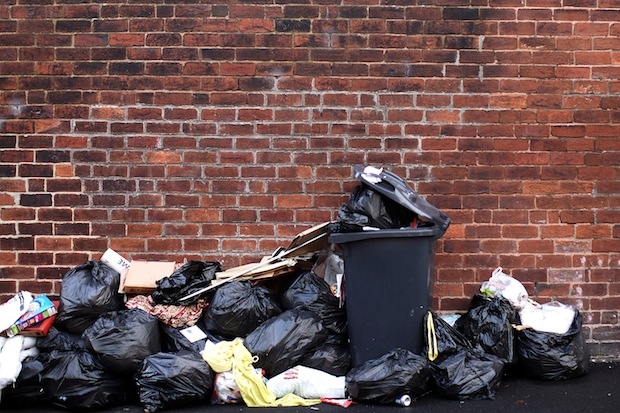The think tank Policy Exchange has just published an excellent report on Britain’s urban green spaces called ‘Park Land’. The report’s author, Katherine Drayson, argues that we need to take better care of our parks and public gardens, particularly in the north-east, where local authority expenditure on open spaces has been cut by more than a third in the past two years.
‘Flourishing parks and green spaces are central to the success of our cities,’ argues Drayson. ‘Yet we’ve all gone for a walk in our local park only to find used needles, dog excrement and litter ruining our beautiful green spaces.’
Drayson’s solution is for the government to help set up a website that maps all of Britain’s urban green spaces. Not only would such a map help the public make better-informed decisions about the use of such spaces and whether or not they should be developed for housing, but it could become a resource for voluntary groups who want to organise clean-up operations. There is already an iPhone app called LoveCleanStreets that enables users to report graffiti and fly-tipping to their local councils, and this could be like that, except on a larger scale.
I’m all for anything that helps to make our cities cleaner places. Few things annoy me more than seeing litter and dog mess in London. A particular bugbear is when dog owners take the trouble to scoop up their animal’s mess and put it in a plastic bag, but then leave the bag on the pavement. That’s actually worse than doing nothing since it stops the excrement being washed away by the rain.
I fantasise about organising squads of vigilantes who will go around collecting these plastic bags and then forcing them through the letter boxes of negligent pet owners. Any owner who fails to scoop will be forcibly restrained while their dog is put down in front of them using a captive-bolt pistol.
I’ve been emailing photographs of litter to Ealing Council for at least ten years, long before LoveCleanStreets came into existence, and in my experience it doesn’t always work. I used regularly to email a picture of my street to the Labour leader of the council after the rubbish men had been on Wednesday mornings. Thanks to their slapdash attitude, approximately 10 per cent of the contents of the recycling boxes always ends up on the pavement. The upshot is that the people who are supposed to take the rubbish away leave a trail of litter in their wake. Not so much refuse collectors as refuse creators.
In the end, I decided to take matters into my own hands. Consequently, on Wednesday mornings I can be spotted following a rubbish lorry down my road clutching a black bin bag and wearing a pair of Marigold gloves. The worst part is when one of my neighbours has put their food waste out the night before in a plastic bag. That’s a gold-embossed invitation to the local fox population, who will strew chicken bones and discarded takeaways all over the pavement. The rubbish men won’t even give a mess like that a second glance.
You’d think my neighbours would be grateful that I’ve become the street’s unofficial litter monitor and some of them are, but it’s quite hard to avoid a reputation as a busybody if you’re constantly knocking on doors and lecturing people about rubbish etiquette. So I’ve stopped doing that.
Instead, I try to lead by example in the hope that if people see me out there picking up litter they’ll follow suit. It happens occasionally. I was once on my hands and knees, scraping food waste off the pavement outside the house at the top end of the street, when a man from the council block opposite came out to help me. It was the high point of my week.
Most of the time, though, I just get dirty looks — much filthier looks than if I was discarding a used tissue or a Coca-Cola can. Members of the public think it’s peculiar, not to say disgusting, if a good citizen does anything to clean up their mess. It’s one of the ironies of contemporary Britain that it’s more socially taboo to pick up litter than it is to drop it.
So best of luck to Policy Exchange. Any initiative that encourages people to take more responsibility for public spaces should be encouraged.







Comments